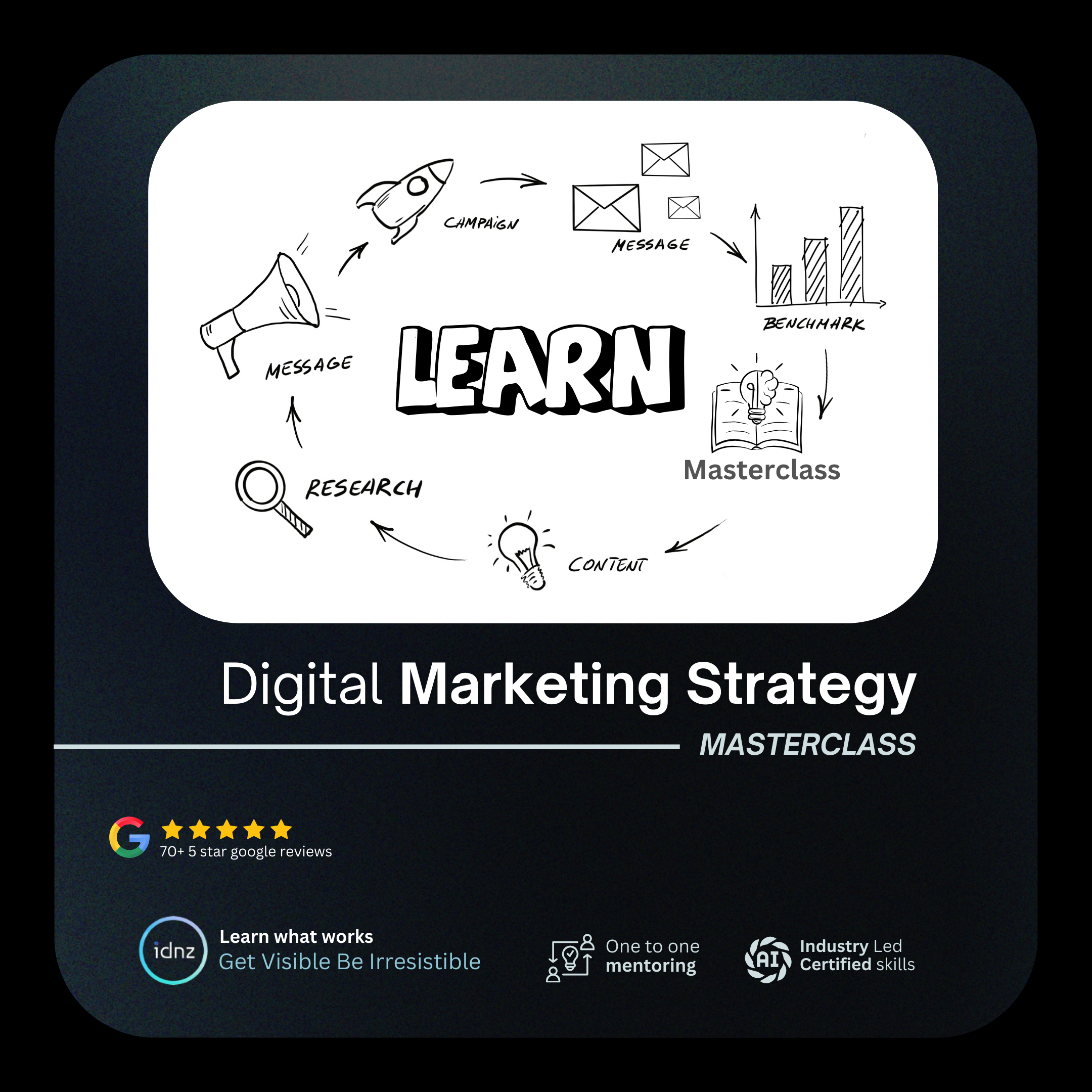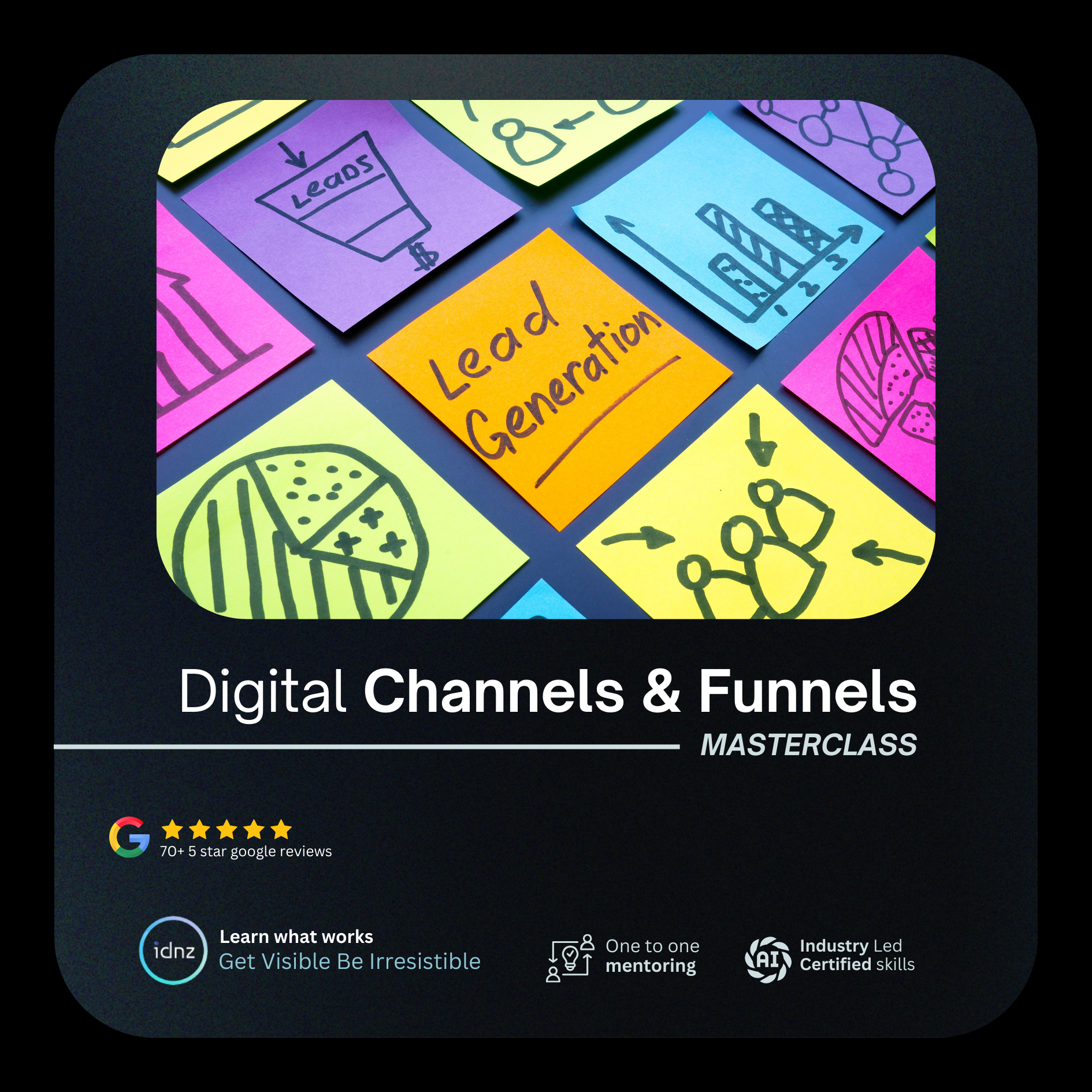IDNZ | The Future of Upskilling: Why Practical Training Programs Are Essential for Career Growth
In today’s fast-paced job market, practical training programmes are rapidly replacing traditional theoretical learning. With the demand for hands-on skills ever increasing, New Zealand’s education sector is embracing innovative approaches that prepare learners for real-world challenges. In this blog, we explore why practical training programmes, bolstered by industry-experienced tutors and small class sizes, are the key to unlocking career advancement through the best certificate courses NZ has to offer.
1. The Demand for Hands-On Skills Over Theoretical Knowledge
Modern employers are shifting their focus from academic qualifications to demonstrable skills. Practical training programmes offer an immersive learning experience, ensuring that learners gain immediate, applicable skills to excel in their roles. This shift is especially important in a competitive market where theory alone is not enough.
2. The Impact of Small Class Sizes on Learning Outcomes
Small class sizes mean that every student receives personalised attention. With fewer students in each session, tutors can better address individual needs and foster interactive, engaging lessons. This environment significantly enhances learning outcomes and ensures that complex topics are understood thoroughly.
3. Industry-Experienced Tutors Bring Real-World Insights
When learning from tutors who have hands-on industry experience, students gain invaluable insights into the practicalities of their chosen field. These experts not only provide theoretical background but also share case studies, best practices, and real-life challenges, making the learning process both engaging and relevant.
4. Certificate Courses NZ: A Gateway to Career Advancement
Certificate courses in NZ are designed to meet the evolving demands of the workforce. By focusing on practical skills and real-world applications, these courses offer a direct pathway to job readiness. They are an excellent investment for professionals seeking to upskill quickly in a dynamic career landscape.
5. Balancing Long-Term Study and Short Intensive Sessions
While some learners thrive with long-term study programmes (ranging from 12 months to 2 years), others may prefer one-day intensive courses that provide a quick yet impactful learning experience. Below is a comparison table to help you decide which format best suits your career goals:
| Programme Duration | Key Features | Benefits |
|---|---|---|
| 12 Months to 2 Years | Comprehensive curriculum, in-depth practical modules, continuous assessment | Detailed understanding, strong industry network, career-long skill enhancement |
| One-Day Intensive | Focused session on a specific skill, expert-led, immediate practical application | Quick upskilling, immediate impact on current role, flexible scheduling |
Programme Duration Key Features Benefits 12 Months to 2 Years Comprehensive curriculum, in-depth practical modules, continuous assessment Detailed understanding, strong industry network, career-long skill enhancement One-Day Intensive Focused session on a specific skill, expert-led, immediate practical application Quick upskilling, immediate impact on current role, flexible scheduling
Hello, World!
Interactive elements such as filters and dynamic search options can be integrated into the table on your website to further assist prospective students.
6. Upskilling in a Digital Age: Flexibility and Innovation
As remote learning continues to gain momentum, practical training programmes are evolving to include virtual labs and online interactive sessions. This flexibility allows learners from across New Zealand to access top-tier education regardless of location, bridging the gap between traditional and modern education.
7. Future Trends: Continuous Learning for Career Longevity
In an era where technology and industry demands are constantly evolving, continuous upskilling is no longer optional—it’s essential. By enrolling in practical training programmes and certificate courses, professionals can future-proof their careers and stay ahead in an ever-changing marketplace.
Frequently Asked Questions (FAQ)
What are practical training programmes?
Practical training programmes are courses that emphasise hands-on skills and real-world applications over traditional theoretical learning. They equip learners with immediate, job-ready skills through interactive sessions and real-life projects.
How do small class sizes benefit my learning experience?
Smaller class sizes ensure that you receive personalised attention from tutors. This environment allows for more interactive sessions, tailored feedback, and a better grasp of complex subjects, ultimately leading to enhanced learning outcomes.
Why are industry-experienced tutors important in these programmes?
Tutors with real-world experience bring invaluable insights from their professional backgrounds. They offer practical advice, share case studies, and highlight industry best practices, which help bridge the gap between academic theory and workplace demands.
What’s the difference between long-term courses and one-day intensive sessions?
Long-term courses (ranging from 12 months to 2 years) provide a comprehensive curriculum and continuous assessment, building deep expertise and a robust industry network. One-day intensives focus on specific skills, offering immediate practical knowledge that can be quickly applied in your current role.
Which certificate courses in NZ are best for career advancement?
The best certificate courses in NZ focus on current industry needs and practical skill development. Look for programmes that combine theoretical foundations with hands-on training, small class sizes, and experienced tutors to ensure you gain skills that are directly applicable to your career goals.
How do these programmes prepare me for the future job market?
By focusing on real-world skills, practical training programmes ensure you are well-equipped to meet modern job market demands. They not only boost your technical competencies but also enhance problem-solving, adaptability, and critical thinking—all essential for long-term career growth.
Final thoughts
Upskilling is the cornerstone of future career success. With practical training programmes that emphasise hands-on skills, small class sizes for tailored learning, and industry-experienced tutors, New Zealand’s certificate courses offer an unmatched opportunity for career advancement. Whether you opt for a long-term study or a short, intensive session, the benefits of real-world skills will ensure you remain competitive in an ever-changing job market.
Embrace the future of learning today, and invest in a practical education that paves the way for tomorrow’s success!
This SEO-optimised listicle leverages key focus points and keywords such as practical training programmes, industry-experienced tutors, small class sizes, and certificate courses NZ to ensure high visibility and engagement.




